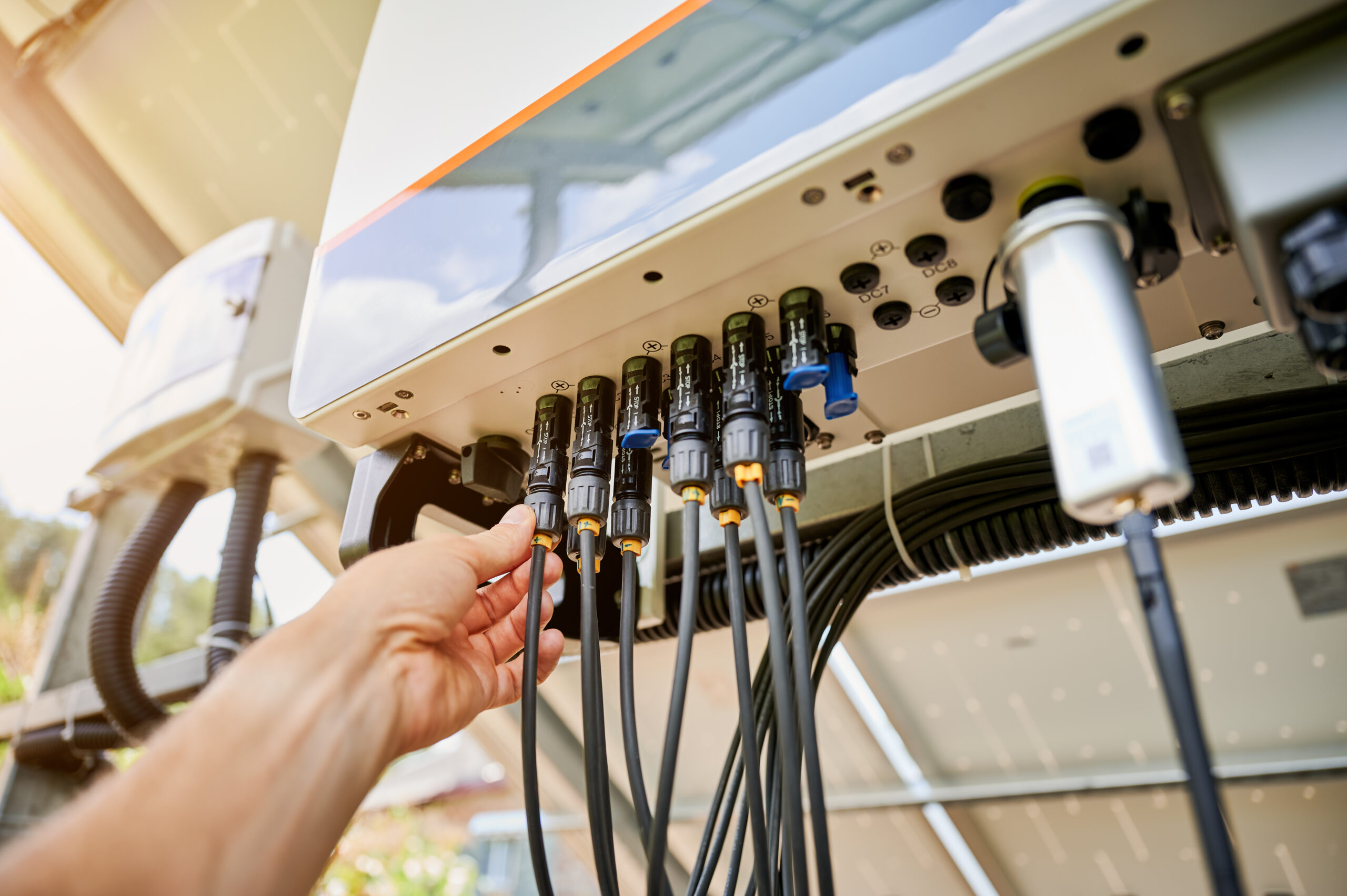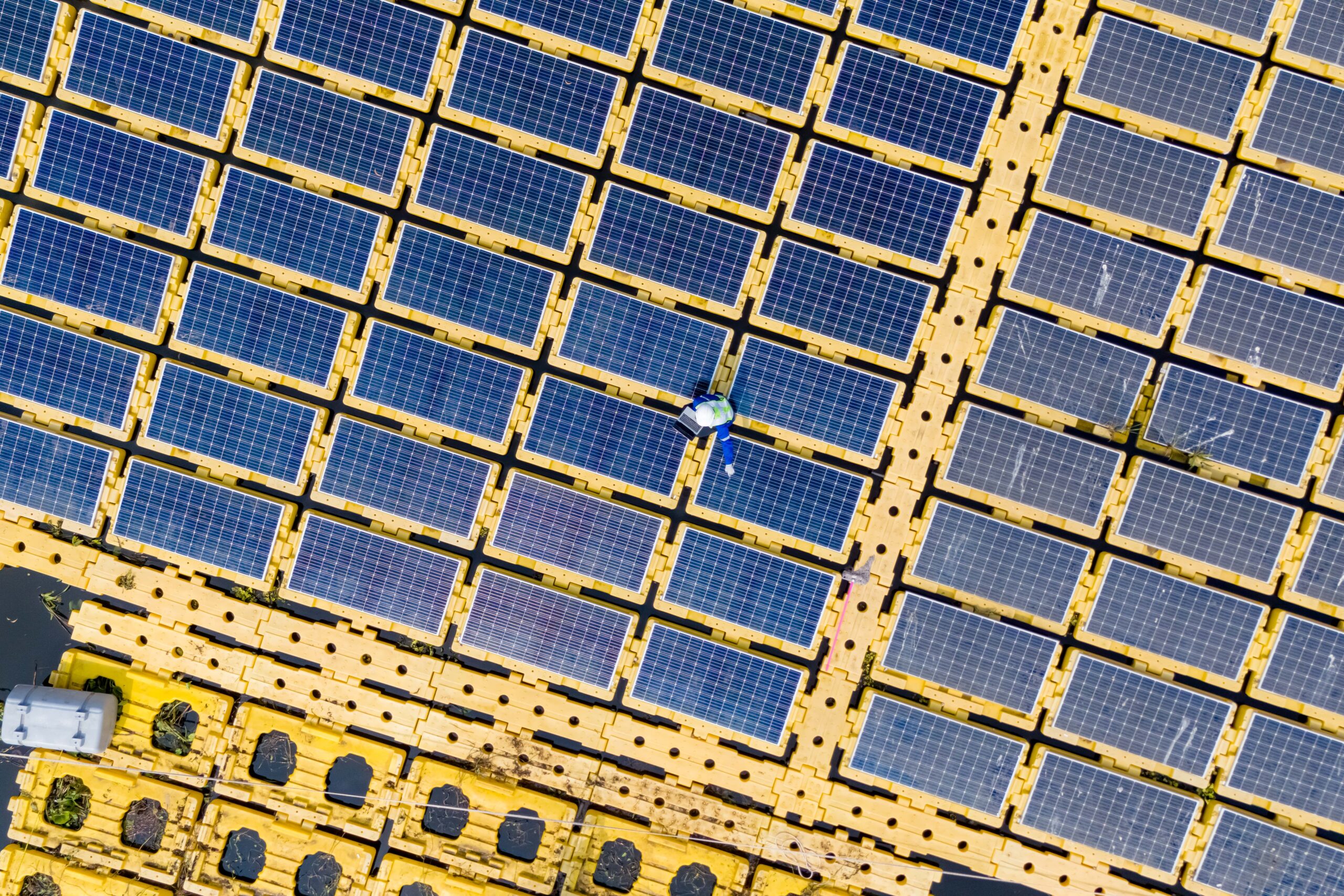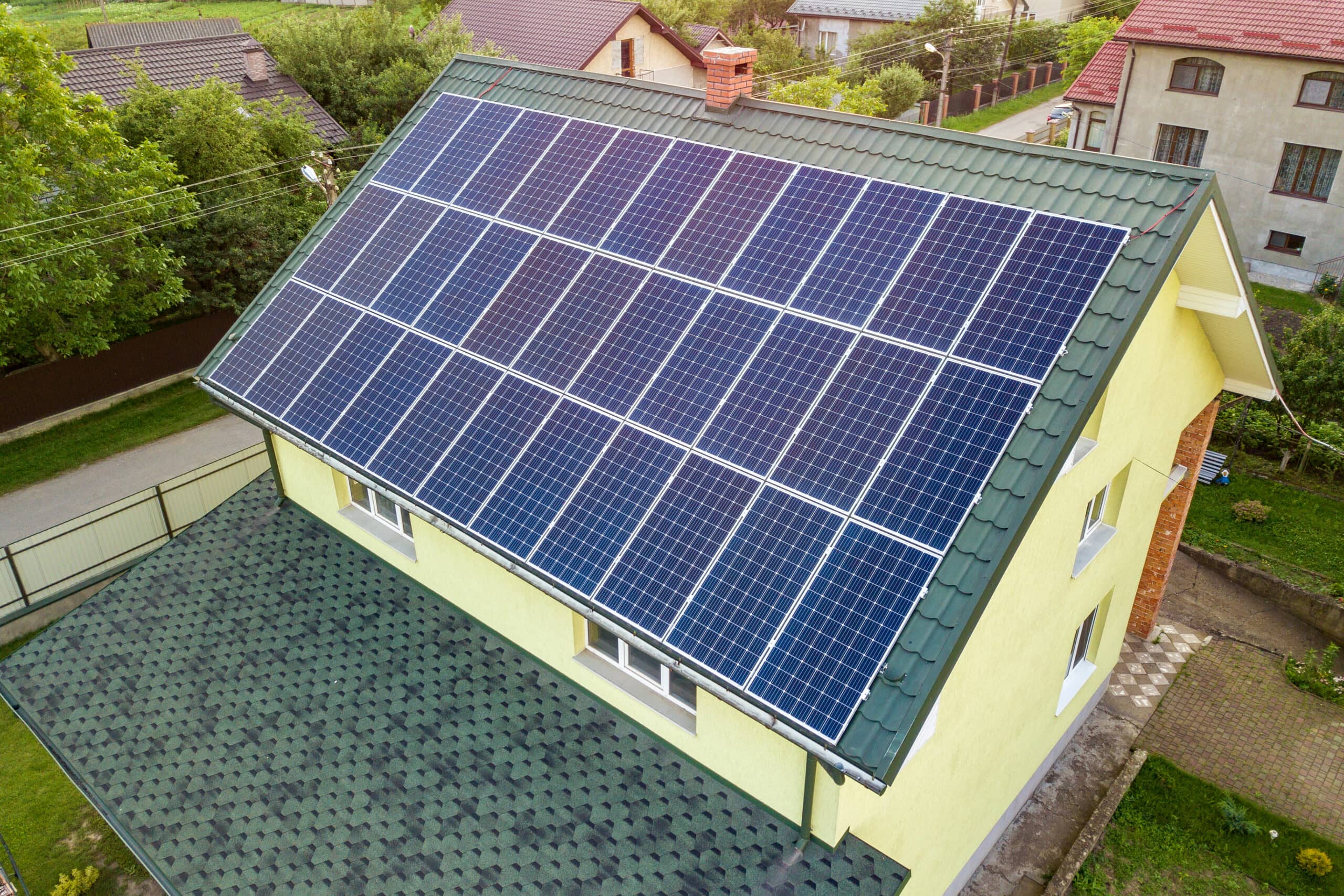A hybrid inverter is a supercharged version of a traditional inverter used in solar energy systems. It combines the functions of a grid-tied inverter and a battery inverter into a single device. Unlike traditional inverters that can only convert DC power from solar panels into AC power for immediate use or export to the grid, hybrid inverters have some extra tricks up their sleeve. They can also store excess energy in batteries for later use and even draw power from them during high demand or when the grid is down. This flexibility allows homeowners to optimize their energy usage, reduce reliance on the grid, and increase self-consumption of solar energy. In a nutshell, hybrid inverters are like the Swiss Army knives of solar inverters, offering multiple functionalities to maximize the benefits of solar power.
What is the Difference Between an Inverter and a Hybrid Inverter?
There are some key differences between a standard inverter and a hybrid inverter when it comes to inverters. A standard inverter is designed to convert the DC power generated by solar panels into AC power for immediate use or export to the grid. It can’t store excess energy or provide backup power during outages.
On the other hand, a hybrid inverter takes things to the next level. In addition to converting DC power to AC power, it can store surplus energy in batteries for later use. This means that even when the sun isn’t shining, you can still tap into the stored energy and power your home. Hybrid inverters offer greater flexibility, allowing you to optimize your energy consumption and increase self-sufficiency.
So, the main difference lies in the ability of hybrid inverters to store and utilize energy, providing backup power and maximizing the benefits of solar energy. It’s like having a regular inverter on steroids, giving you more control and options for your solar power system.
How Does a Hybrid Inverter Work?
Inverters are devices that convert direct current (DC) power generated by solar panels into alternating current (AC) power, which is used to power our homes and appliances. AC power is the type of electricity that we typically use in our daily lives.
DC power flows in one direction, while AC power alternates its direction periodically. Solar panels generate DC power, but our homes and appliances operate on AC power. That’s where inverters come in, converting the DC power from the solar panels into AC power that our electrical devices can use.
But here’s where hybrid inverters take it a step further. In addition to converting DC power to AC power, hybrid inverters can convert AC power back to DC power. This is important because it allows the hybrid inverter to store excess energy in batteries for later use. So, when your solar panels generate more electricity than you need, instead of exporting it to the grid, the hybrid inverter can convert the AC power into DC power and store it in batteries.
The dual functionality of hybrid inverters is what sets them apart. They can manage both grid power and battery power. When the sun is shining and your solar panels generate more energy than you’re using, the hybrid inverter can store the excess energy in batteries. Then, when the sun goes down or during a power outage, the hybrid inverter can draw power from the batteries to provide electricity for your home.
Batteries play a crucial role in hybrid inverter systems. They act as energy storage devices, allowing you to store the excess energy generated by your solar panels when the sun isn’t shining. This can increase your self-consumption of solar energy and provide backup power during outages, giving you more control over your energy usage and potentially reducing your reliance on the grid.
In a nutshell, hybrid inverters combine the functions of converting DC to AC power and converting AC to DC power for energy storage. This dual functionality and battery energy storage make hybrid inverters a powerful tool for optimizing energy usage and increasing self-sufficiency.
Can a Hybrid Inverter Run Without a Battery?
Hybrid inverters can indeed operate without a battery backup. They have the flexibility to function as a regular grid-tied inverter when no battery is connected to the system.
When a hybrid inverter operates without a battery, it can still convert the DC power generated by the solar panels into AC power for immediate use in your home. However, without battery storage, any excess energy that is not immediately consumed will be exported back to the grid.
The main implication of using a hybrid inverter without battery storage is that you won’t be able to store excess energy for later use. This means that when your solar panels generate more electricity than you need, that surplus energy will be sent back to the grid instead of being stored for your use.
Additionally, you won’t have access to stored energy during a power outage without a battery backup. In a typical grid-tied system, when the grid goes down, the inverter shuts off to ensure the safety of utility workers.
So, while a hybrid inverter can still function without a battery, it’s essential to consider the implications and limitations. Without battery storage, you won’t be able to store excess energy or have backup power during outages. However, if you’re primarily interested in reducing your reliance on the grid and maximizing self-consumption of solar energy, a hybrid inverter with a battery can still be a great option.
Advantages of Hybrid Solar Inverters
Hybrid solar inverters offer a range of advantages that make them a popular choice for solar energy systems. Here are some key benefits:
1. More Energy Efficiency: Hybrid inverters are smart and can use solar power first before relying on the grid. This means you can save more energy and lower your electricity bills.
2. Backup Power: With a hybrid inverter and battery storage, you can have backup power during outages. So, no more sitting in the dark!
3. Be Independent: Hybrid inverters give you more control over your energy. You can store excess solar power and use it when needed, reducing your reliance on the grid.
4. Easy to Expand: If you want to add more solar panels or batteries in the future, hybrid inverters are flexible and can handle the extra load.
5. Smarter Energy Management: Some hybrid inverters have monitoring and control features. You can see how much energy you’re making and using and even connect it to other smart devices in your home.
These are just a few of the advantages of using hybrid solar inverters. They offer increased energy efficiency, backup power capabilities, and the opportunity to achieve greater grid independence. If you’re considering a solar energy system, hybrid inverters can provide a reliable and efficient solution.
How Much Does a Hybrid Inverter Cost?
The cost of a hybrid inverter can vary depending on a few factors. Here’s an overview of the cost considerations:
1. Brand: Different brands offer hybrid inverters at different price points. Some well-known brands may have higher prices due to their reputation and quality, while lesser-known brands have more affordable options.
2. Capacity: The capacity of the hybrid inverter, measured in kilowatts (kW), can impact the cost. Higher-capacity inverters that can handle more solar panels and batteries may be pricier than lower-capacity ones.
3. Additional Features: Some hybrid inverters have advanced features like built-in monitoring systems, Wi-Fi connectivity, or compatibility with smart home devices, which may be more expensive than basic models.
Depending on the factors mentioned above, the price of a hybrid inverter can range from a few hundred dollars to several thousand dollars. It’s a good idea to do some research, compare prices from different brands, and consult with a professional to find the best option for you.
Hybrid inverters offer a range of benefits, including increased energy efficiency, backup power, and more control over your energy usage. They are an excellent choice for optimizing their solar energy systems.
To maximize your hybrid inverter, it’s important to ensure compatibility when connecting inverters in parallel. Check the electrical compatibility and safety requirements, gather the necessary tools and equipment, and follow the proper installation guidelines. This will help enhance power output and efficiency in your solar setup.
If you’re ready to explore the world of hybrid inverters further, contact Stanton Solar. We provide personalized guidance and advice based on your specific needs and location and will help you choose a suitable hybrid inverter.
Remember, harnessing solar energy’s power can positively impact both the environment and your energy bills. So, take that next step and embrace the benefits of hybrid inverters!




